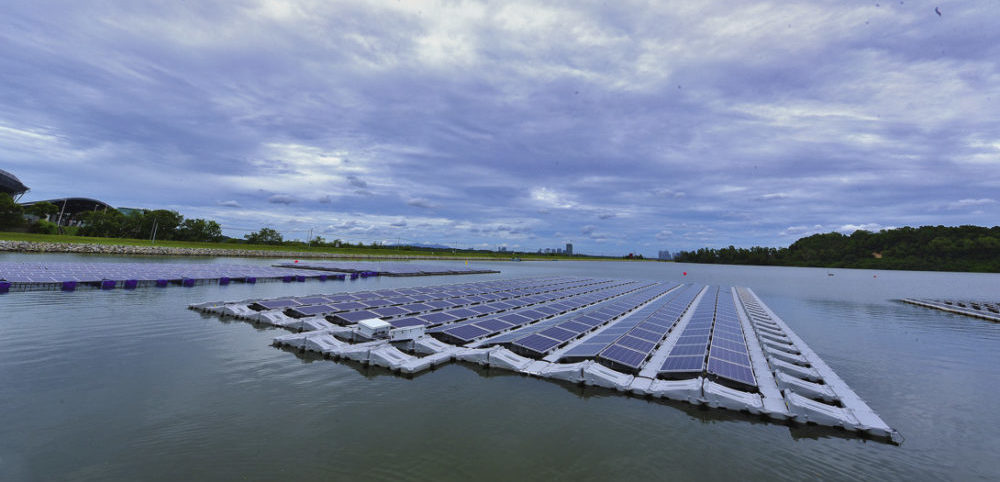Eni New Energy SpA, a subsidiary of Italian oil group Eni, is planning to develop a 14.19 MW floating solar plant on an artificial water basin in Brindisi, located in the southern region of Apulia, Italy. Despite being one of Europe’s largest and most mature markets, this comes as the first announcement for a utility-scale floating solar project in the country.
According to procedural documents published by the regional government of Apulia, the solar array will cost approximately €14.7 million and will occupy a water surface of approximately 15 hectares.
The plant will consist of two separate floating arrays, with 39,424 crystalline modules with an output of 360 W and five central inverters, provided by undisclosed manufacturers. Eni New Energy says that modules will have aluminium frames and junction boxes mounted on the rear side, and will be on floating structures similar to those of the French specialist Ciel & Terre, also citing the company’s Hydrelio floating platforms.
The project will be connected to the internal grid of the industrial site. The project is planned to be completed within approximately seven months after final approval from local authorities is secured, according to Eni.
Popular content
Despite this being Italy's jump into floating PV, the country may have a strong potential for similar projects in the future, particularly in combination with hydropower. According to a recent report from the Solar Energy Research Institute of Singapore (SERIS), around 1.3 GW of floating solar capacity had been installed globally as of the end of 2018. The authors of the study argue that floating PV has the potential to become a “third pillar” of the industry, after ground-mounted and rooftop solar applications.
Europe’s largest floating PV project being developed is a 48 MW installation in the Netherlands, which so far, has been the country with the largest number of announced floating projects on the continent.
This content is protected by copyright and may not be reused. If you want to cooperate with us and would like to reuse some of our content, please contact: editors@pv-magazine.com.



1 comment
By submitting this form you agree to pv magazine using your data for the purposes of publishing your comment.
Your personal data will only be disclosed or otherwise transmitted to third parties for the purposes of spam filtering or if this is necessary for technical maintenance of the website. Any other transfer to third parties will not take place unless this is justified on the basis of applicable data protection regulations or if pv magazine is legally obliged to do so.
You may revoke this consent at any time with effect for the future, in which case your personal data will be deleted immediately. Otherwise, your data will be deleted if pv magazine has processed your request or the purpose of data storage is fulfilled.
Further information on data privacy can be found in our Data Protection Policy.